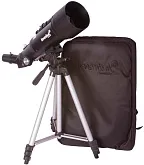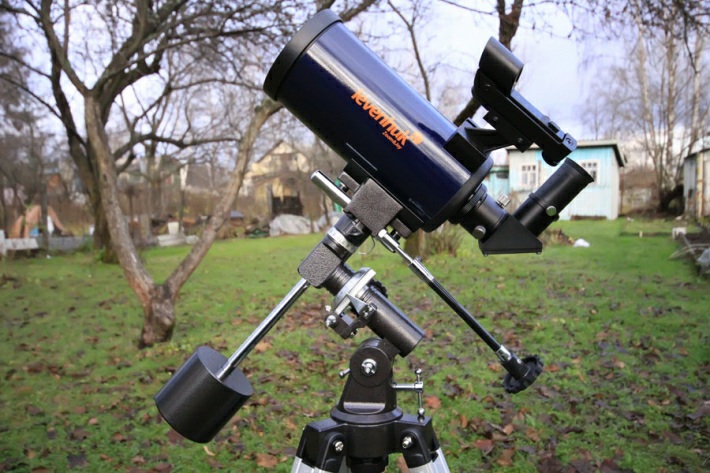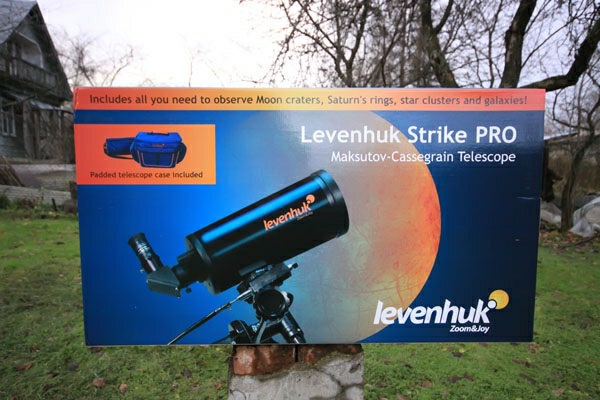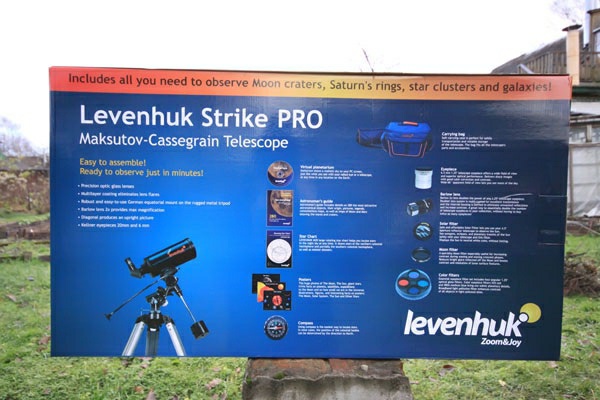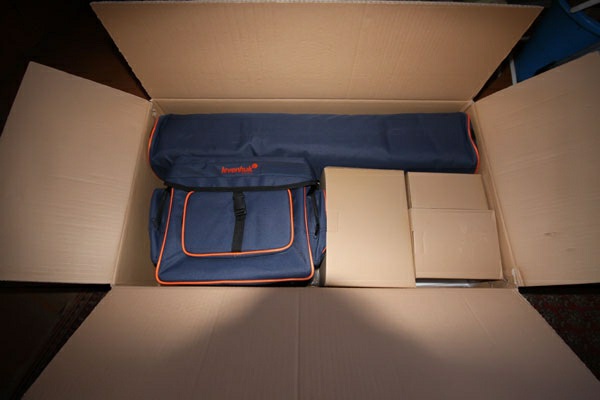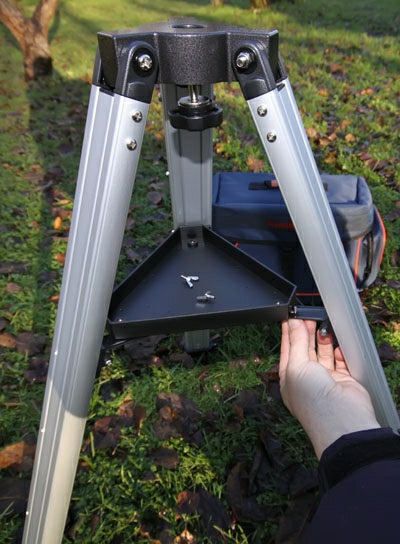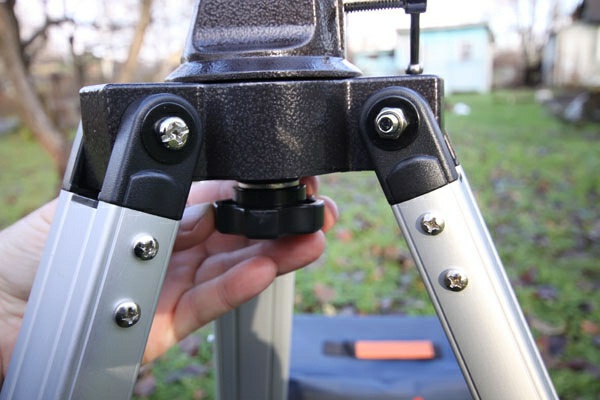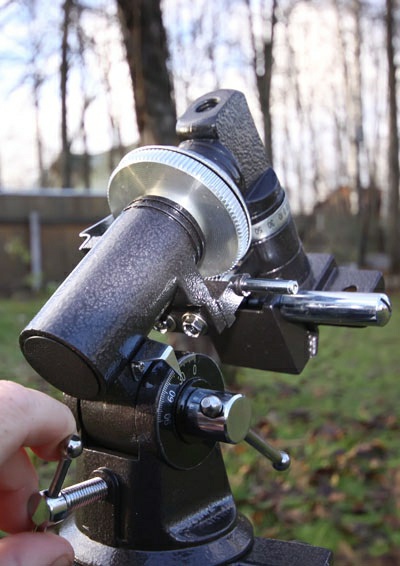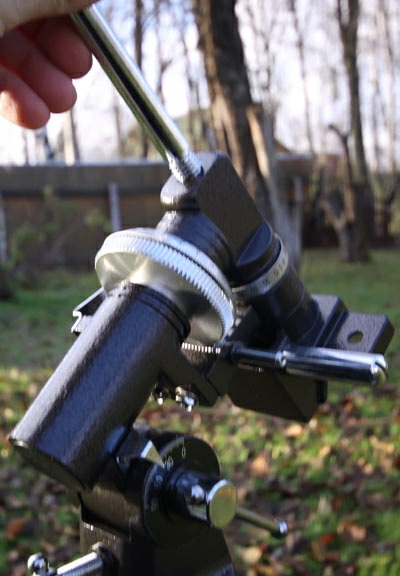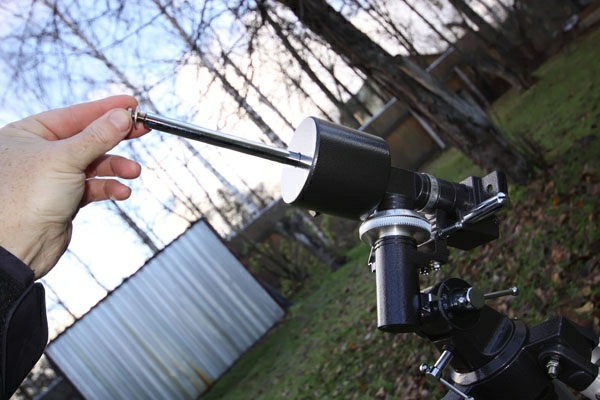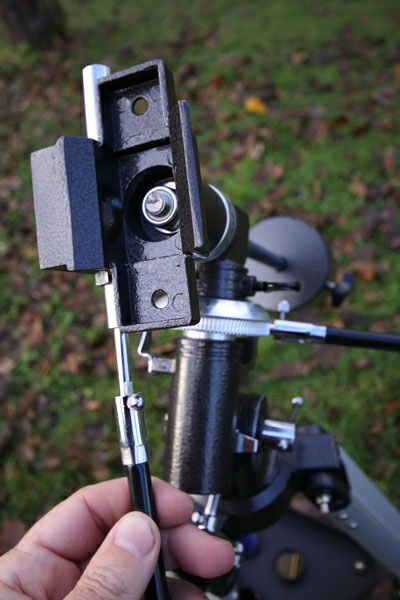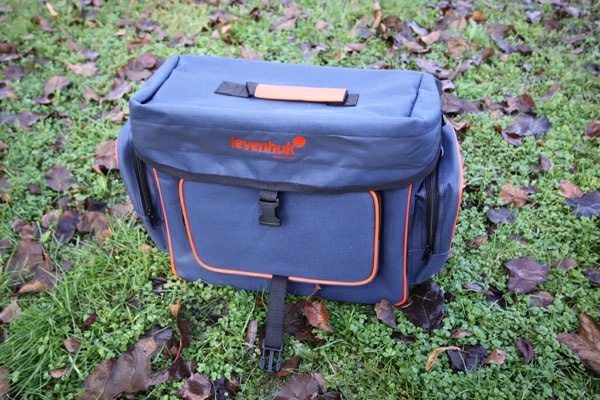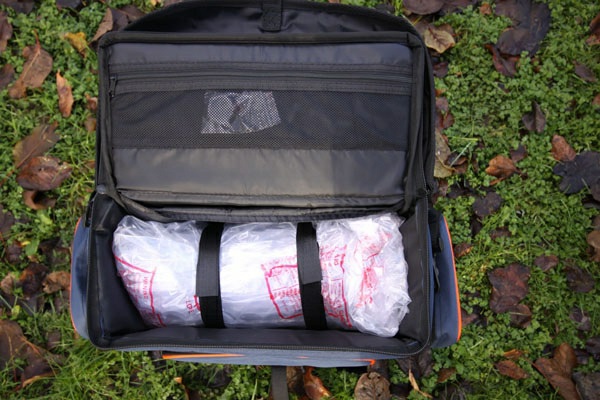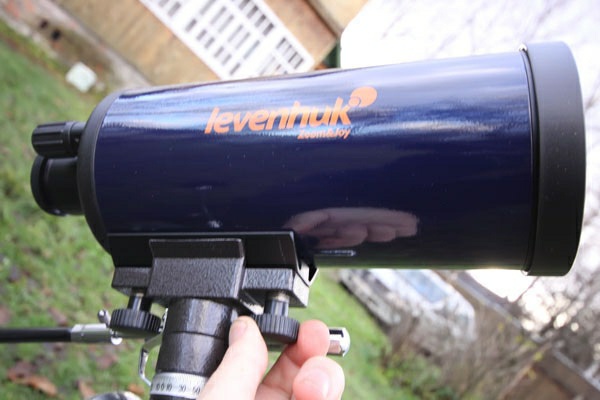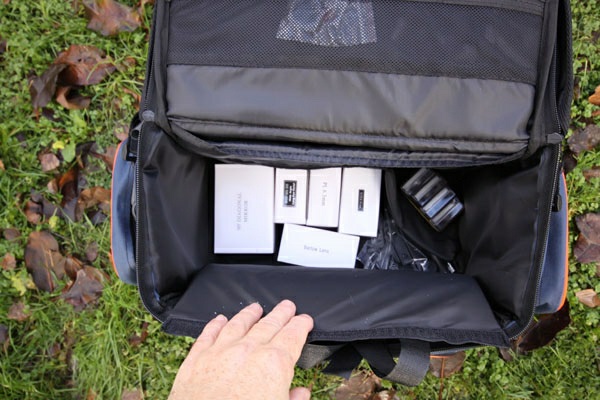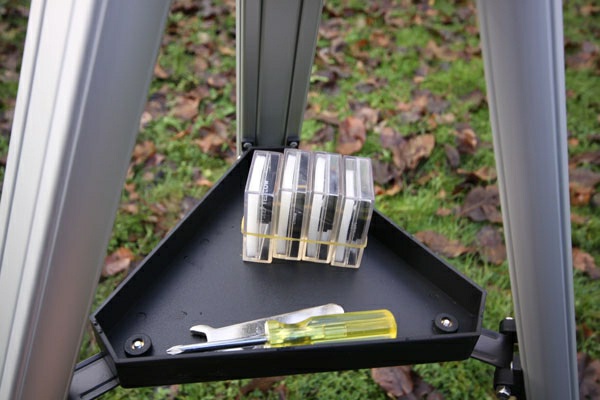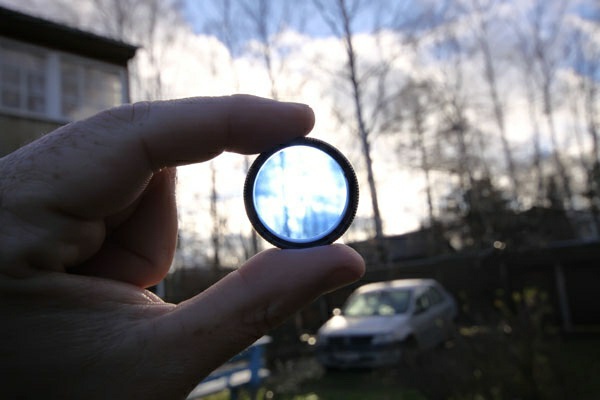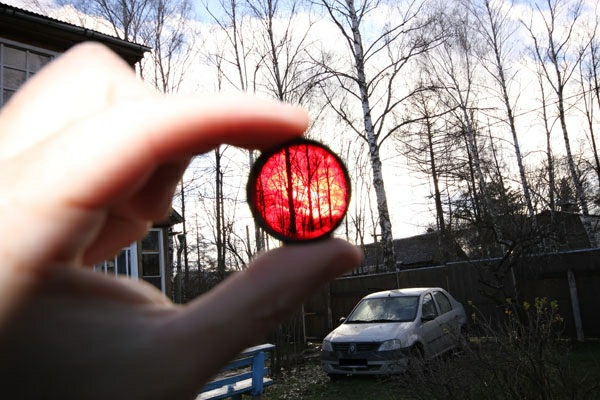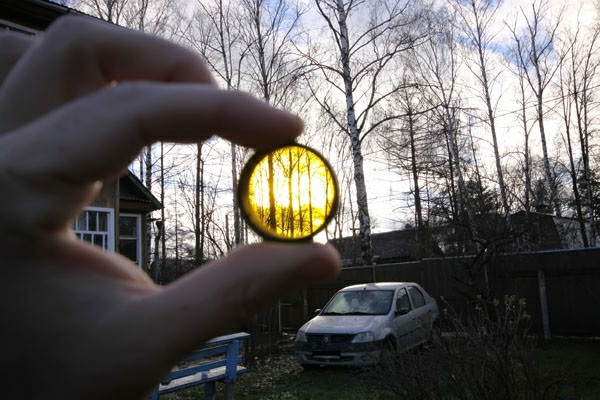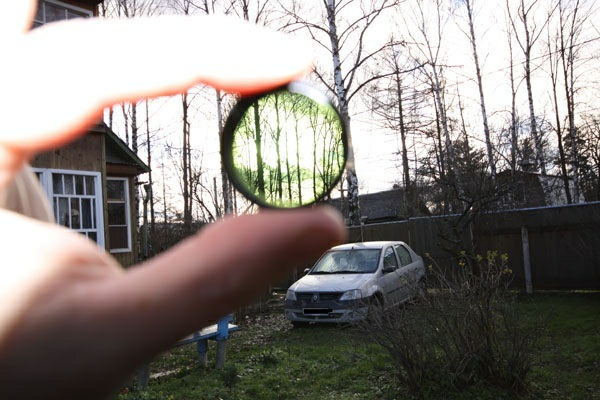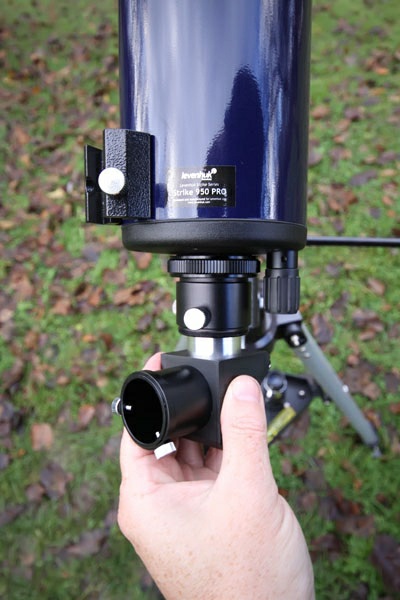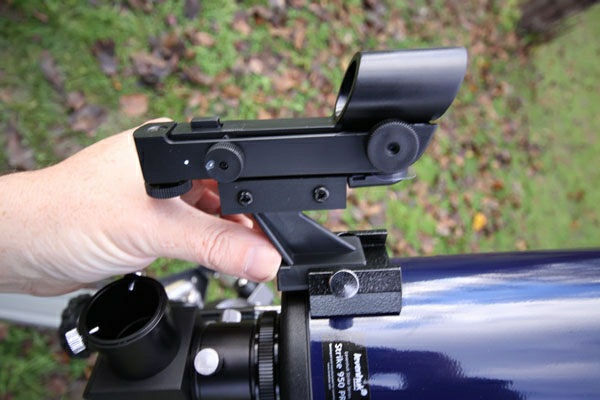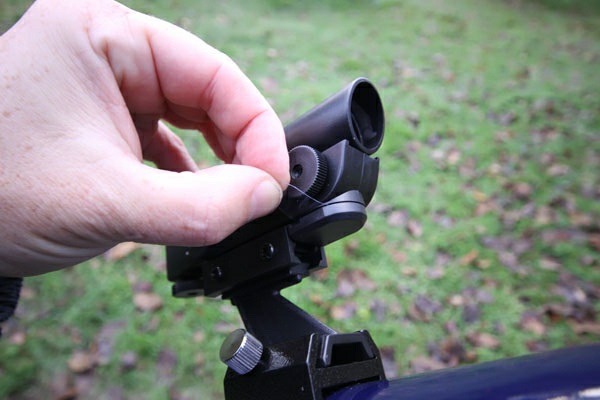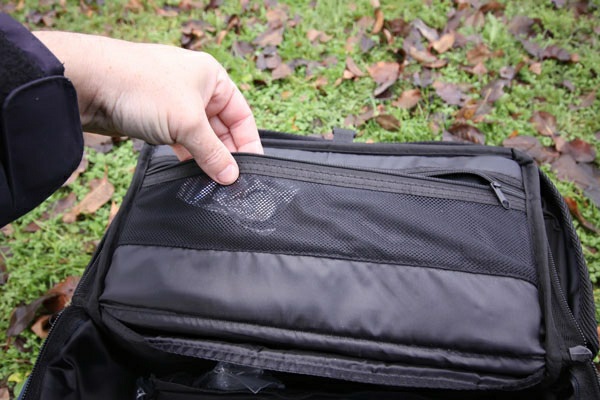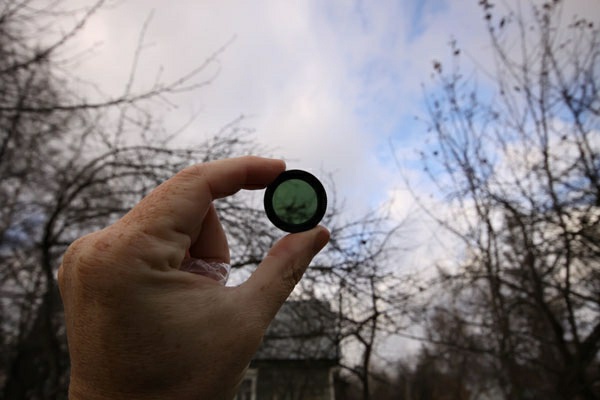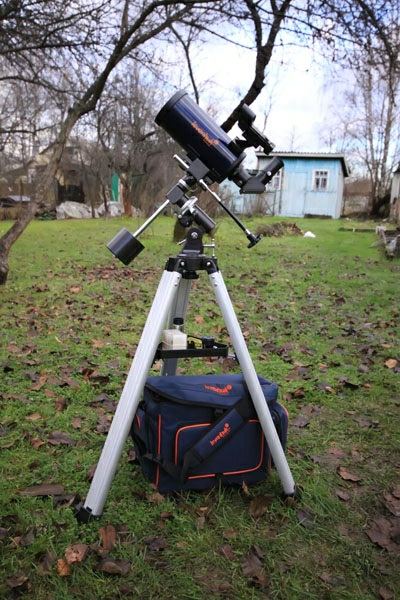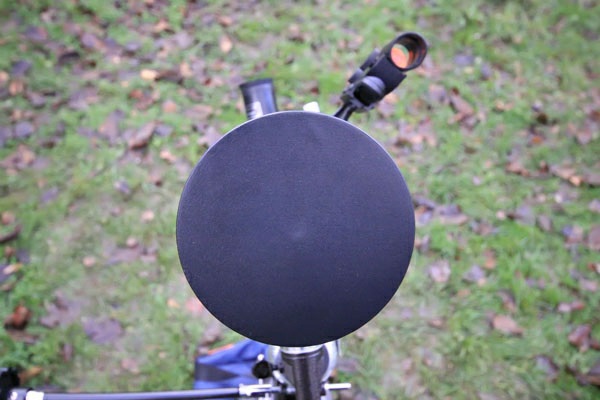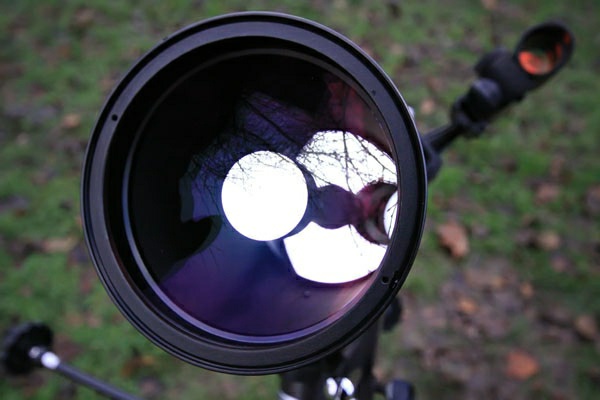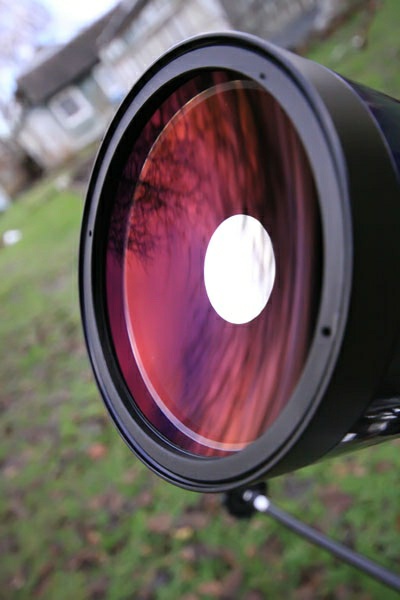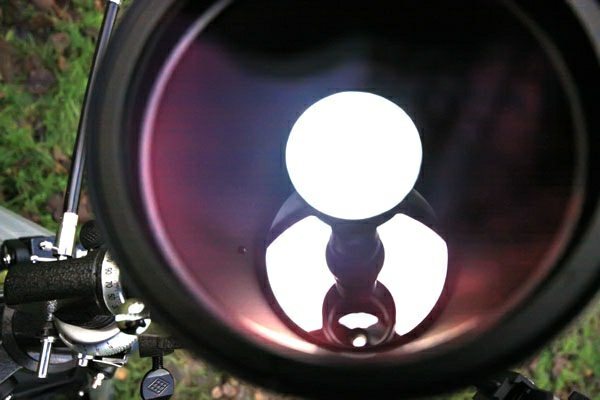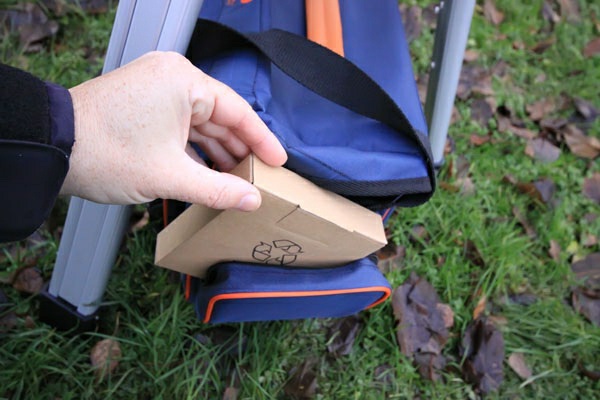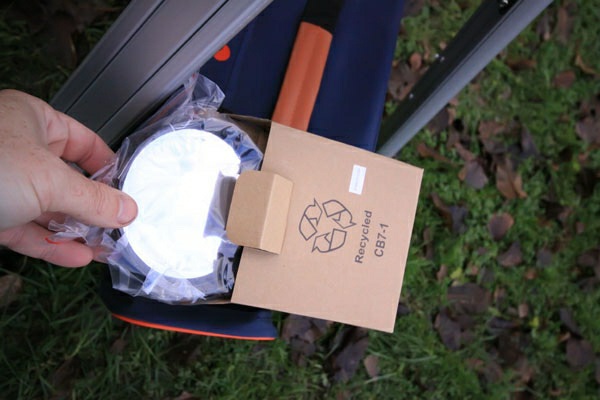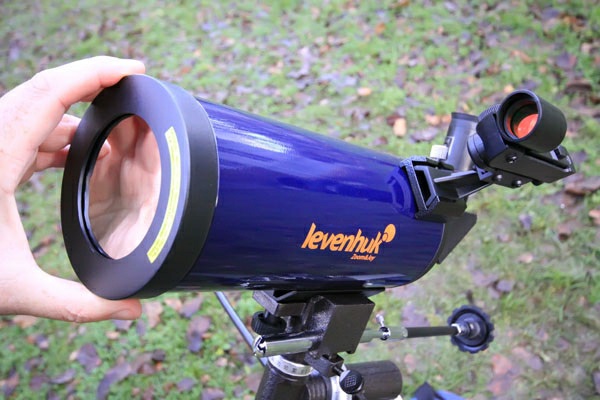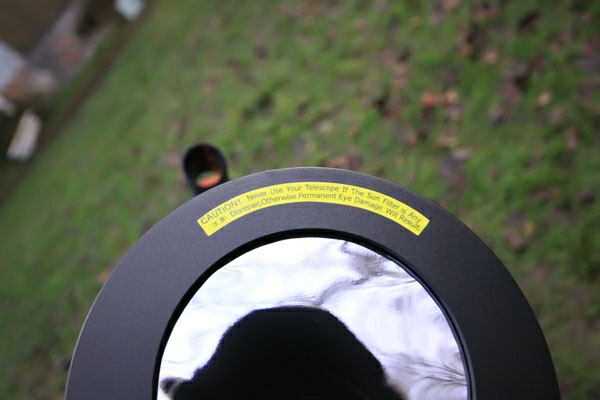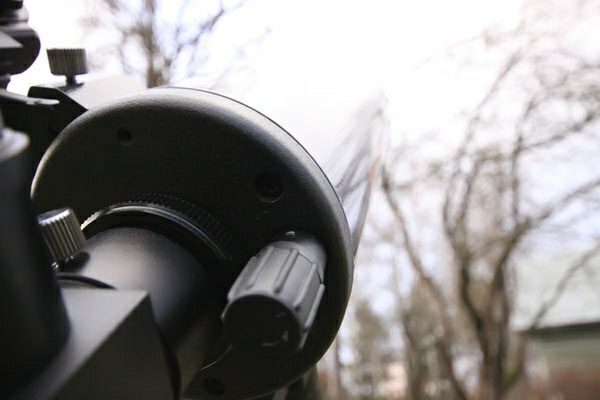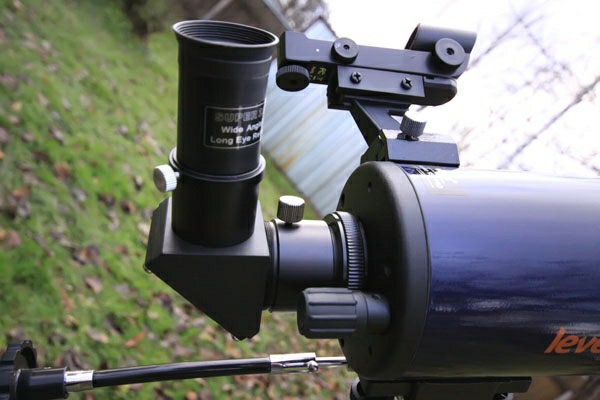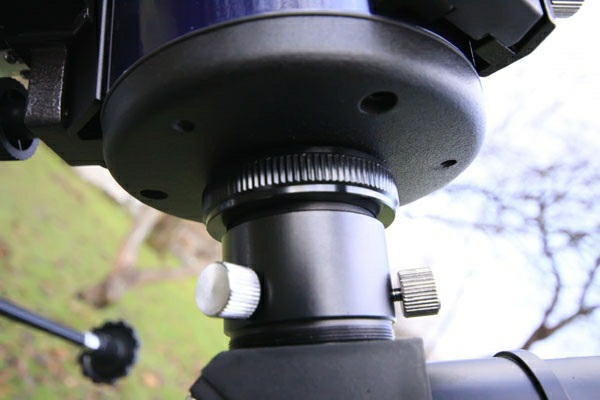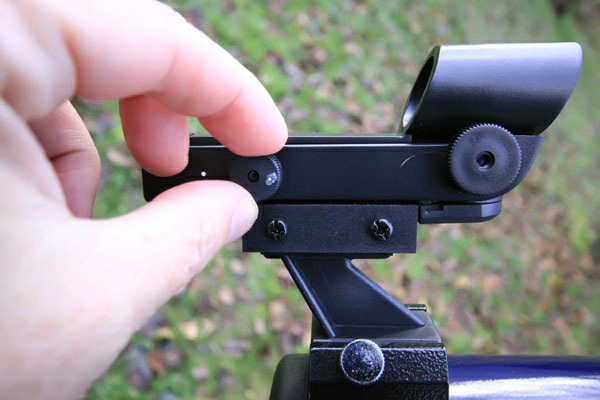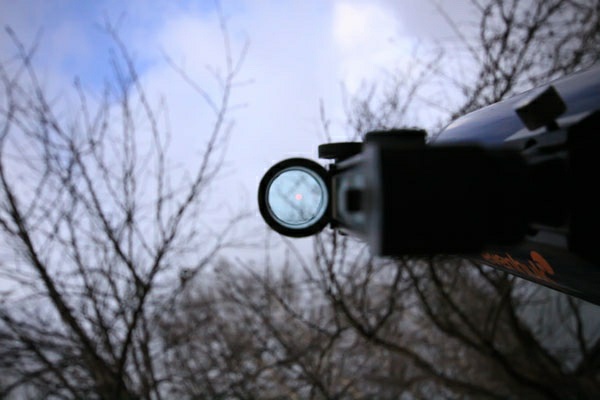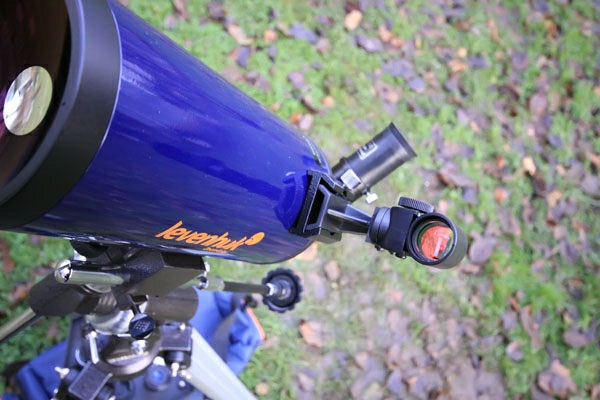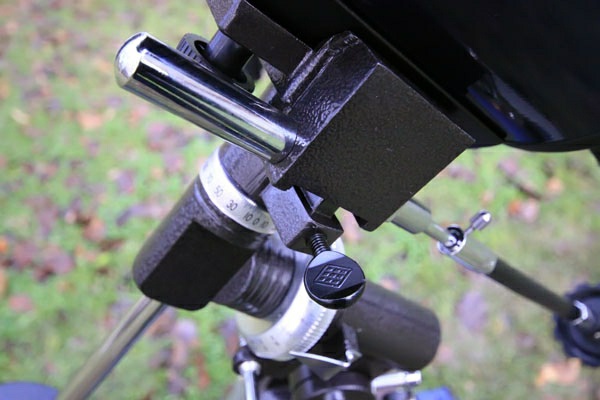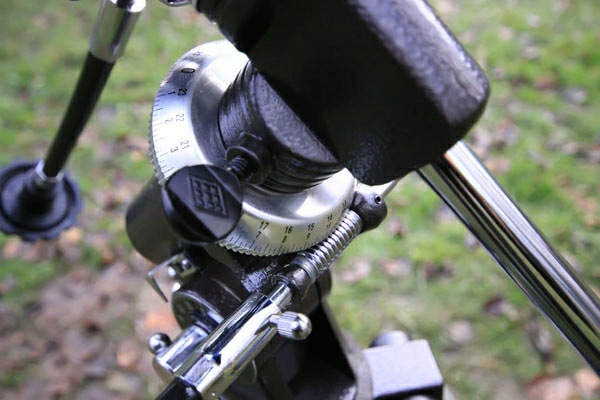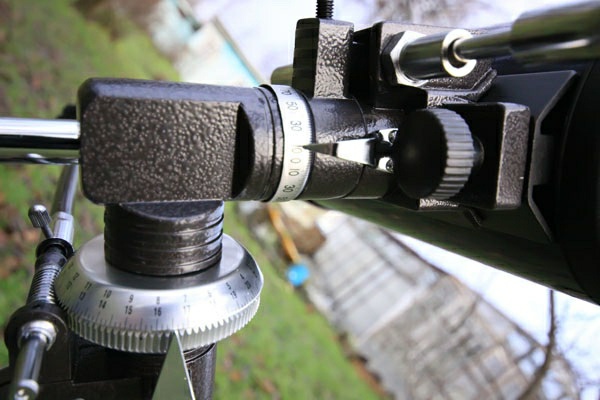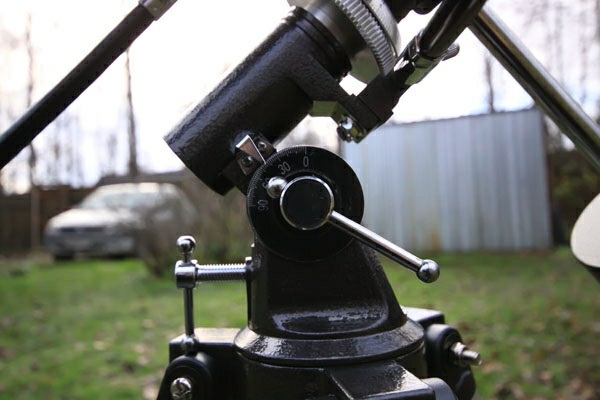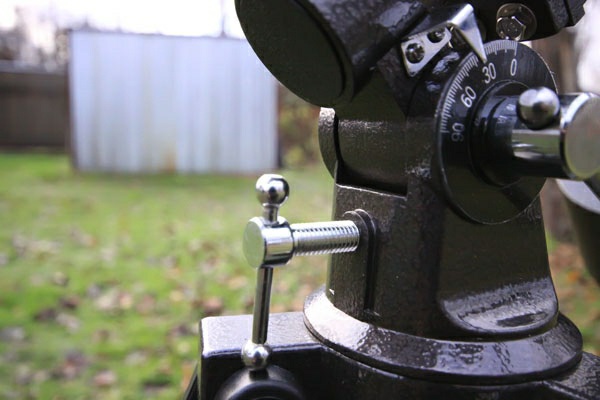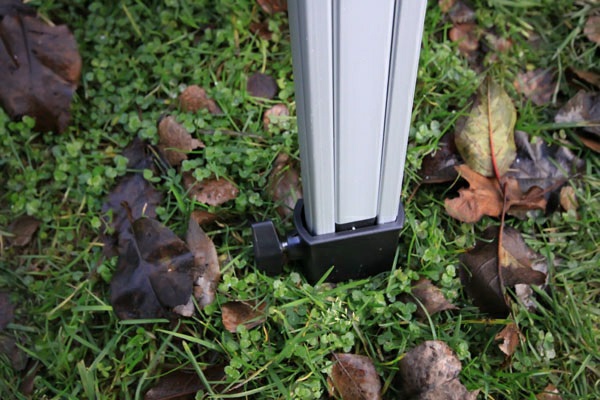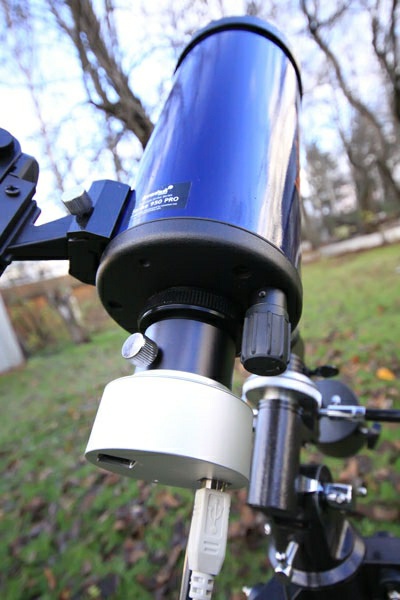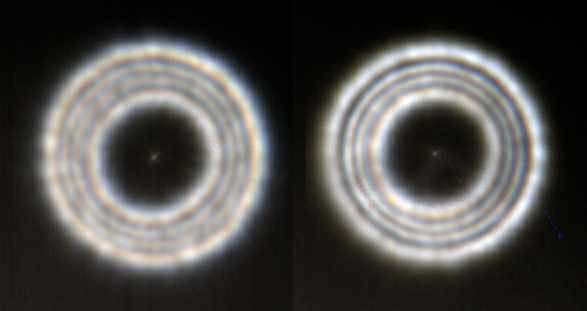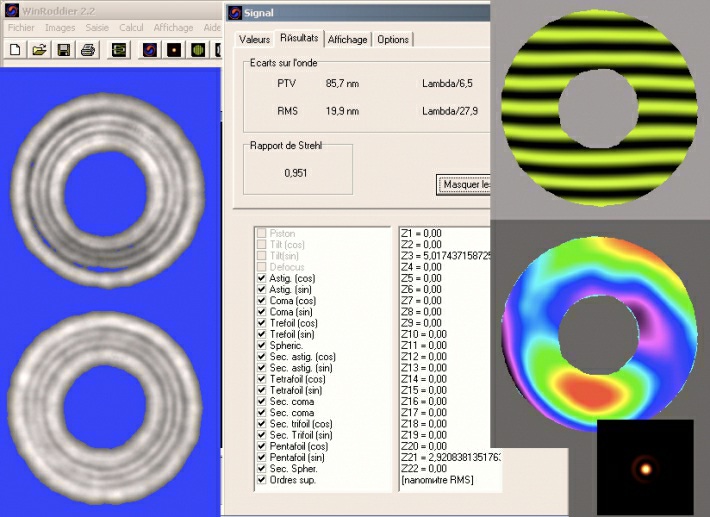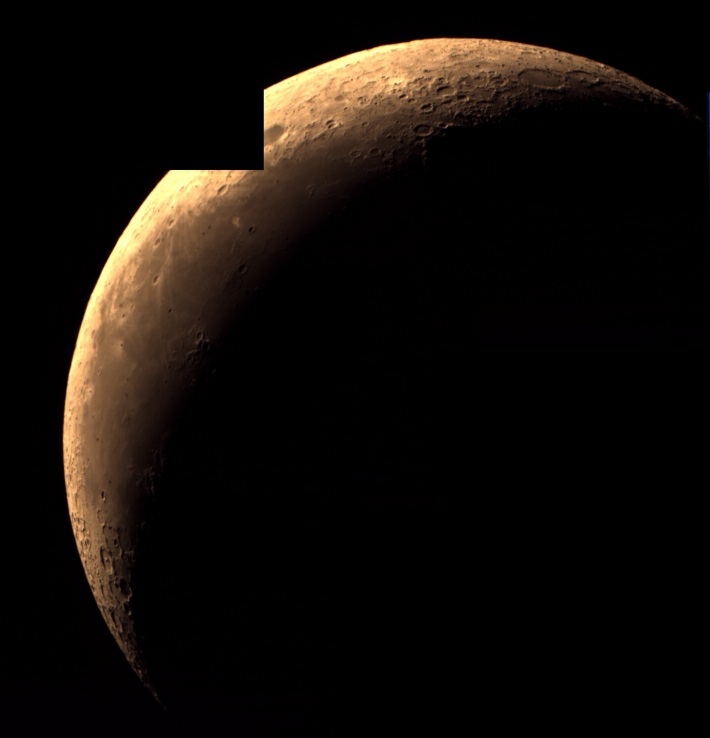Levenhuk Strike 950 PRO Telescope Review
Levenhuk Strike 950 PRO is the most compact telescope in the Levenhuk Strike PRO series. It is designed for people who plan to take the instrument with them to the countryside or on vacations. Due to its great optical performance, this model allows observers to see many interesting astronomical objects including deep-sky ones. The Maksutov-Cassegrain optical design of this model provides for its compact dimensions and light weight.
Levenhuk Strike 950 PRO is a wonderful instrument for people living an active lifestyle, always on the road seeking the best observing sites. It is also a great option if you don’t have much free space in your apartment to store large and bulky observing instruments. The large 1250-mm focal length allows you to get very detailed views of the planetary disks or the Moon. The 90-mm aperture is enough to show you many bright deep-sky objects. Levenhuk Strike PRO telescopes come with an advanced accessory kit that includes standard accessories from the Levenhuk Strike kit (printed materials, eyepieces, compass, planetarium) plus additional supplements that make your observations more comfortable and interesting: 6mm Plössl eyepiece, 2x Barlow lens, color optical filter set, solar and lunar filters, as well as quality Levenhuk Zongo 60 Telescope Case for storage and transportation. The telescope with its incredible accessory set stands out among all the competing products available on the optical equipment market. The Levenhuk Strike 950 PRO Telescope is packed in a colorful cardboard box.
What’s in the box:
- Levenhuk Strike PRO Telescope on a German equatorial mount
- Aluminum tripod
- Eyepieces: SUPER 10 mm, SUPER 20 mm
- An additional Plossl 6.3 mm eyepiece
- 2x Barlow lens
- Set of filters
- Lunar filter
- Solar filter
- Red Dot finder scope
- Diagonal mirror
- "See it all!" Astronomer's Handbook with descriptions of 280 celestial objects
- Space Posters Set (Moon, Sun and Other Stars, Solar System)
- Planisphere
- Stellarium software CD to assist you during your astronomical observations
- Compass
- Levenhuk Zongo 60 Telescope Case
- User manual and lifetime warranty
So, you’ve just got your Levenhuk Strike 950 PRO!
But don’t rush to unpack your telescope – first, learn a little more about the contents of the box! The back of the box has a list of all the accessories included in the package and their brief description.
Now let’s open the box and start assembling!
Give the tripod additional rigidity by attaching the accessory tray. Place it on top of the bracket and then secure with three thumbscrews from underneath.
Attach the mount to the tripod head and tighten the azimuth lock knob.
Screw the counterweight rod into the threaded hole on the end of the declination shaft and slide the counterweight onto the rod. Replace the threaded cap (toe saver) on the end of the counterweight rod that prevents the counterweight from falling on your foot if the lock knobs come loose.
Attach slow-motion controls to worm gear mechanisms and lock them in place.
Now open the bag, unpack the telescope tube and install it on the mount.
Take out the variety of accessories included in the package and put them on the spacious accessory tray.
The kit includes four color optical filters for lunar and planetary observations, a lunar filter that reduces luminous flux, and an aperture solar filter.
Install the diagonal mirror and finderscope onto the telescope tube.
Take the plastic fuse out of the finderscope battery.
The lunar filter can be found in the upper mesh compartment inside the case.
When we are done with assembling, we can start to balance the instrument. When the screws regulating the braking force on the axes are loosened, the telescope should remain motionless.
Remove the protective cap.
The first thing you see is the front lens, called the meniscus. The back of the meniscus has a special coated spot that reflects the rays from the primary mirror and passes them further into the eyepiece node.
The meniscus is coated with special antireflective and protective coatings. Use a special cleaning pen to remove dust and dirt from its surface.
The optical tube is blackened inside; the optical elements are equipped with baffles that cut off any stray light. To protect the lens from dew, buy a special lens hood or make one yourself using thick paper or cardboard and the outer diameter of the telescope tube.
The solar filter is in the right pocket.
This solar filter fits snugly over your telescope's aperture, but you should always carefully check it for a secure fit and damages on its surface before each observing session. Whether you use a telescope, binoculars of some other optical instrument, you cannot observe without a special protective solar filter – it will result in serious eye damage and even blindness. The solar filter reduces the intensity of sunlight by 10,000 times. It allows you to see spots, flares and other interesting processes of the Sun’s surface visible in white light.
The focusing device looks like a large knob on the back side of the telescope tube. It has a rod inside that pushes the main mirror along the optical axis, adjusting image sharpness. It is attached with a pair of screws.
The diagonal mirror turns a beam of light through a 90 degree angle – therefore you can comfortably observe astronomical objects near the zenith.
The back side of the optical tube has three adjusting screws and three locking ones. These screws are used for optical scheme adjustment. As the instrument has already been fully tested and adjusted at the factory, don’t touch the screws without special knowledge and a strong need.
Before you start observing, don’t forget to activate the finderscope.
Before you start you fascinating journey through the cosmos, you will need to align the finderscope optical axes with the optical axis of the telescope. For that you should locate an object (about 300 meters away from you) and, using two screws, center it in the view field.
The optics of the finderscope are multi-coated - you won’t have any trouble locating objects.
Despite the fact that the telescope kit is truly rich and impressive, I would also recommend buying a motor drive on the RA axis used to automatically follow the diurnal motion of celestial objects. It facilitates your visual observations and allows for astrophotography. The motor drive is mounted on a metal rod.
I recommend applying a small amount of lubricant on all friction surfaces - the movement will be much smoother; it will also significantly decrease the force transmitted to the shafts, threads and gears.
The coordinate circles provide quick and easy navigation on desired celestial objects.
Besides the finderscope alignment, you will also need to align the polar axis of the telescope before starting your observations. The locking and adjusting knobs rotate freely; you can also change the position of the knob itself for more convenience.
Set the latitude of the area from where you observe. The telescope is equipped with a convenient latitude scale and latitude adjustment knob.
The tripods' height is adjustable.
This telescope model allows you to install a digital camera in place of the diagonal mirror. You can also attach a regular SLR camera using a special T-ring adapter designed specifically for different camera brands (Canon EOS, Nikon, Sony, Minolta, Pentax, etc.)
| Specifications | ||
| Optical design | Maksutov-Cassegrain | |
| Optics coating | fully multi-coated | |
| Objective lens diameter (aperture), mm | 90 | |
| Focal length, mm | 1250 | |
| Highest practical power, x | 180 | |
| Focal ratio | f/13.9 | |
| Resolution threshold, arcseconds | 1.5 | |
| Limiting stellar magnitude | 11.7 | |
| Eyepieces |
SUPER 10 mm, SUPER 20 mm, Plössl 6.3 mm |
|
| Eyepiece barrel diameter | 1.25" | |
| Finderscope | Red Dot | |
| Focuser | 1.25" | |
| Tripod | aluminum | |
| Tripod height (adjustable), in | 28-49.2 | |
| Mount | German equatorial EQ1 | |
| Usage |
General use product. May be used by kids over 3 years old. |
|
| Weight, lbs | 22.1 | |
Levenhuk Strike 950 PRO Telescope Test
For this test we used the Roddier method, based on the change in light intensity between inside and outside focus star shots.
The test results confirmed the highest quality of produced images. Our score is five out of five! Definitely recommended for purchase!
Tips for beginners
If you have a camera, you can make wonderful photos of bright celestial objects, such as the Moon or planets. You can also use this telescope for shooting deep-sky objects, but that doesn’t make a lot of sense because of its low light-gathering power. The images below were made with Levenhuk Strike 1000 PRO telescope and QHY-5 camera in prime focus.
The Moon
A small fragment of the Moon is missing due to some mistakes I’ve made when shooting. Sorry about that. But still you can get an impression on what kind of astrophotos you can take with this telescope.
Jupiter
Visual observations
Take the telescope outdoors and leave it there for an hour for thermal stabilization. It would be very useful if you make a list of objects you want to observe with their coordinates in advance. Remember that this telescope won’t allow you to see binary stars with angular separation less than 1.5". Later on, you can also buy a few eyepieces with different magnifications and designed for different purposes: High power eyepieces, as well as low power ones for viewing close binary pairs, planetary disks, and extended objects. Detailed views of the Moon and planetary disks are truly impressive!
Summary
The 90-mm objective lens gathers enough light for providing a bright and vivid view; quality multi-coated optics allow for maximum light transmission and, therefore, sharp and contrast images. Eyepieces supplied with the instrument are also manufactured with the utmost care and precision. With a special telescope camera or regular SLR camera you will be able to make wonderful astro shots. The focuser has a standard T thread – you can attach almost any SLR camera available on the market, using a special T-ring adapter (should be bought separately). The lightweight optical tube is installed on German Equatorial mount EQ1 with slow motion controls. The equatorial mount has a counterweight and requires prior adjustments, but it is much more convenient than a simple alt-azimuth mount in terms of tracking celestial objects across the sky. The mount features special coordinate circles that help you find celestial objects by their equatorial coordinates. You can easily follow the diurnal movement of an astronomical object by turning just one knob. If you desire, you can also equip this telescope with a motor drive that will automatically follow the observed object up to the point where it is hidden below the horizon line. The mount is installed on a stable tripod with adjustable height and convenient and spacious accessory tray. And the optics are above all praise – the test results speak for themselves!
Any reproduction of the material for public publication in any information medium and in any format is prohibited. You can refer to this article with active link to eu.levenhuk.com.
The manufacturer reserves the right to make changes to the pricing, product range and specifications or discontinue products without prior notice.
